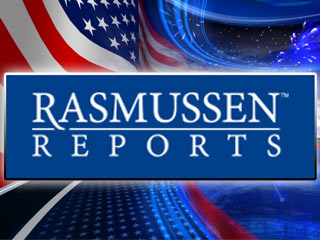REPUBLICANS BRANDED AS THE PARTY OF THE RICH AND DEMOCRATS THE PARTY OF THE POOR
Part One of a Five-Part Series by Stephen R. Meyer
Stephen Meyer is an author and political radio show host, who’s innovative methodology correctly predicted the winning candidate in 47 states and Washington D.C., along with President Obama’s overall victory in 2012. He resides in Vero Beach, Florida.

In a somewhat stunning development, Gallup, the grandfather of all polling institutions, made the decision in late 2015 that they were not going to forecast the outcome of the 2016 presidential election, blaming a growing inability to obtain representative polling samples as their basis for the decision. This decision may have been influenced in-part owing to their wrong 2012 presidential election prediction, which had former Massachusetts’s Governor Romney defeating President Obama.

It is possible that past polling was viewed as being much more reliable than it actually was owing to the domination of the electorate by one of the two major political parties. In 1972 Republican President Nixon captured 96.7% of the Electoral College votes losing only Massachusetts and Washington D.C. and in 1984 Republican President Reagan captured 97.6% of the Electoral College vote losing only Minnesota and Washington D.C. It would have been tough to wrongly predict an election outcome in those elections.
There has been a great shift in the political makeup of the electorate over the past few decades so there are now many more competitive races than existed a few decades ago. For instance, the Rasmussen polling organization had nine states listed as toss-ups in the 2012 presidential election and all these toss-up states were carried by the Democrats, suggesting that all these states were not really toss-up states to begin with, but that there were fundamental errors in the polling methodology.

Vero Communique was kind enough to run a piece in its December, 2015 edition, where a prediction of the outcome of the 2016 presidential election was made not based on polling, but made by extrapolating the 2012 election results out to 2016 using trends established by the 1988 and 2012 presidential elections. The responses to the piece mostly rejected the premise that the 2016 presidential election could be predicted using dated data.
Vero Communique has been gracious in agreeing to publish a series of articles leading up to the 2016 general election where a more detailed case supporting using this extrapolation method to predict presidential election outcomes will be made. If nothing else, the pieces will supply background information that the reader will not have found anywhere else and the information will hopefully make the run-up to the 2016 election much more interesting.
This extrapolation method of prognostication was back-tested to predict the 2012 election by extrapolating 2008 election results out to 2012 using trends established by the 1988 and 2008 presidential elections and the method correctly picked the winner in 47 states and Washington D.C. The success in forecasting the outcome of an election with dated data suggests that campaign efforts, although possibly important, are of little significance in determining presidential election outcomes.
To suggest campaign efforts have little influence on presidential election outcomes is political heresy and to accept the premise that campaigns have little effect on presidential election outcomes requires the reader to approach the assertion with a little mental dexterity. In an attempt to make minds a little more flexible the branding of the Republican Party as being the party of the rich, and the Democrat party as being the party of the poor, will be explored. The ten richest and the ten poorest states of The United States, based on median household income, are listed in the following table with the corresponding party that carried the state in the 2012 presidential election.
| The Ten Richest States Based on Median Household Income as of 2011 (Listed in Order from Richest to less Rich) | The Victorious Party in the State in the 2012 Presidential Election | The Ten Poorest States Based on Median Household Income as of 2011 (Listed in Order of Increasing Income) | The Victorious Party in the State in the 2012 Presidential Election |
| Maryland | Democrat | Mississippi | Republican |
| New Jersey | Democrat | West Virginia | Republican |
| Connecticut | Democrat | Arkansas | Republican |
| Alaska | Republican | Kentucky | Republican |
| Hawaii | Democrat | Alabama | Republican |
| Massachusetts | Democrat | Tennessee | Republican |
| New Hampshire | Democrat | Louisiana | Republican |
| California | Democrat | Oklahoma | Republican |
| Delaware | Democrat | South Carolina | Republican |
| Washington | Democrat | New Mexico | Democrat |
If Republicans are the party of the rich,

and Democrats the party of the poor,

then why are the residents of the ten states with the lowest median household incomes generally voting Republican and the residents of the ten states with the highest median household incomes generally voting Democrat? The obvious answer is that the Republicans are not the party of the rich, and the Democrats are not the party of the poor.
Not yet willing to entertain the idea that the Republicans are not the party of the rich, and Democrats the party of the poor? The ten richest and ten poorest states of the United States, based on median home prices, are listed in the table below with the corresponding party that carried the state in the 2012 presidential election.
| As of 2011, The Ten States with the Highest Median Home Prices (Listed Highest to Lowest Median Home Price) | The Victorious Party in the State in the 2012 Presidential Election | As of 2011, The ten States with the Lowest Median Home Prices (Listed Lowest to Highest Median Home Price) | The Victorious Party in the State in the 2012 Presidential Election |
| Hawaii | Democrat | West Virginia | Republican |
| California | Democrat | Mississippi | Republican |
| New Jersey | Democrat | Arkansas | Republican |
| Massachusetts | Democrat | Oklahoma | Republican |
| Maryland | Democrat | North Dakota | Republican |
| New York | Democrat | Kentucky | Republican |
| Connecticut | Democrat | Alabama | Republican |
| Washington | Democrat | Iowa | Democrat |
| Rhode Island | Democrat | Indiana | Republican |
| Virginia | Democrat | Nebraska | Republican |
If Republicans are the party of the rich, and Democrats the party of the poor, then why are the residents of the ten states with the lowest median home prices generally voting Republican and the residents of the ten states with the highest median home prices generally voting Democrat? It seems both parties are wrongly branded.
Next month, in support of the use of the extrapolation method of election prediction, the domination of recent presidential elections by Democrats in our large population counties will be explored.

Pingback: Proposition: Campaigns are Insignificant in Determining Presidential Election Outcomes | Vero Communiqué
Pingback: Part Two: Campaigns are Insignificant in Determining Presidential Election Outcomes | Vero Communiqué